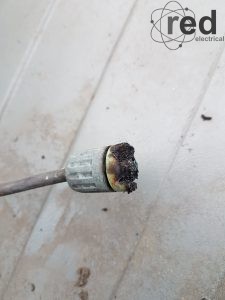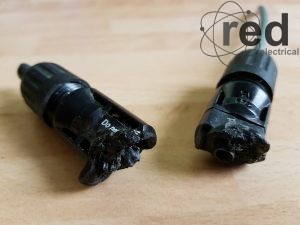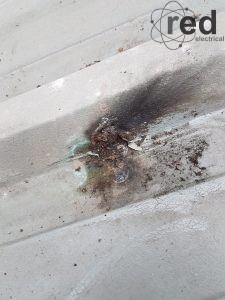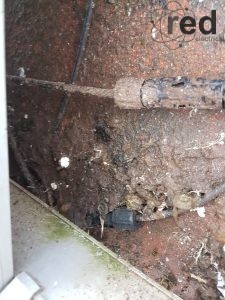

Depending on the manufacturer of your inverter, this fault can have various names. Most call it an isolation fault, some call it an insulation resistance fault (e.g. SMA) , and others such as A.B.B. Power-One call it a Riso fault. In Fronius inverters, it is error code 447.
If your solar inverter is complaining of this fault then either the inverter is at fault, or much more likely there is something wrong with the d.c. cables between the solar panels and the inverter.
Isolation faults can indicate a risk of fire and therefore the system should be switch off until the fault is investigated and found.
The standard of workmanship in many installations is exceptionally poor, with connectors not fitted correctly and cables not kept supported off the roof surface. You can actually see this from the ground by looking underneath the solar panels. Furthermore, if you have a bird infestation (usually pigeons or gulls) then this only makes matters worse.


I am often asked if the fault could just be down to very bad weather because the customer finds it difficult to accept that the very nice lads who installed their system could have left a bodge job behind them. The fact is, many nice people are poorly trained. A suitably designed and installed solar array should stand up to the weather.
Badly fitted connectors allow water ingress, which leads to corrosion. If the cables and connectors are in contact with the roof surface, it is likely that they will accumulate organic debris such as leaf mulch and bird droppings. As this biodegrades it releases ammonia, which will accelerate corrosion of the connections.
Corrosion of the connectors introduces an electrical resistance in the connections. This causes the connectors to heat up, which can be a fire hazard. Often the inverter will detect a leakage current and will report an insulation resistance fault (also known as Riso or isolation fault). The inverter will shut down to reduce the likelihood of fires.
